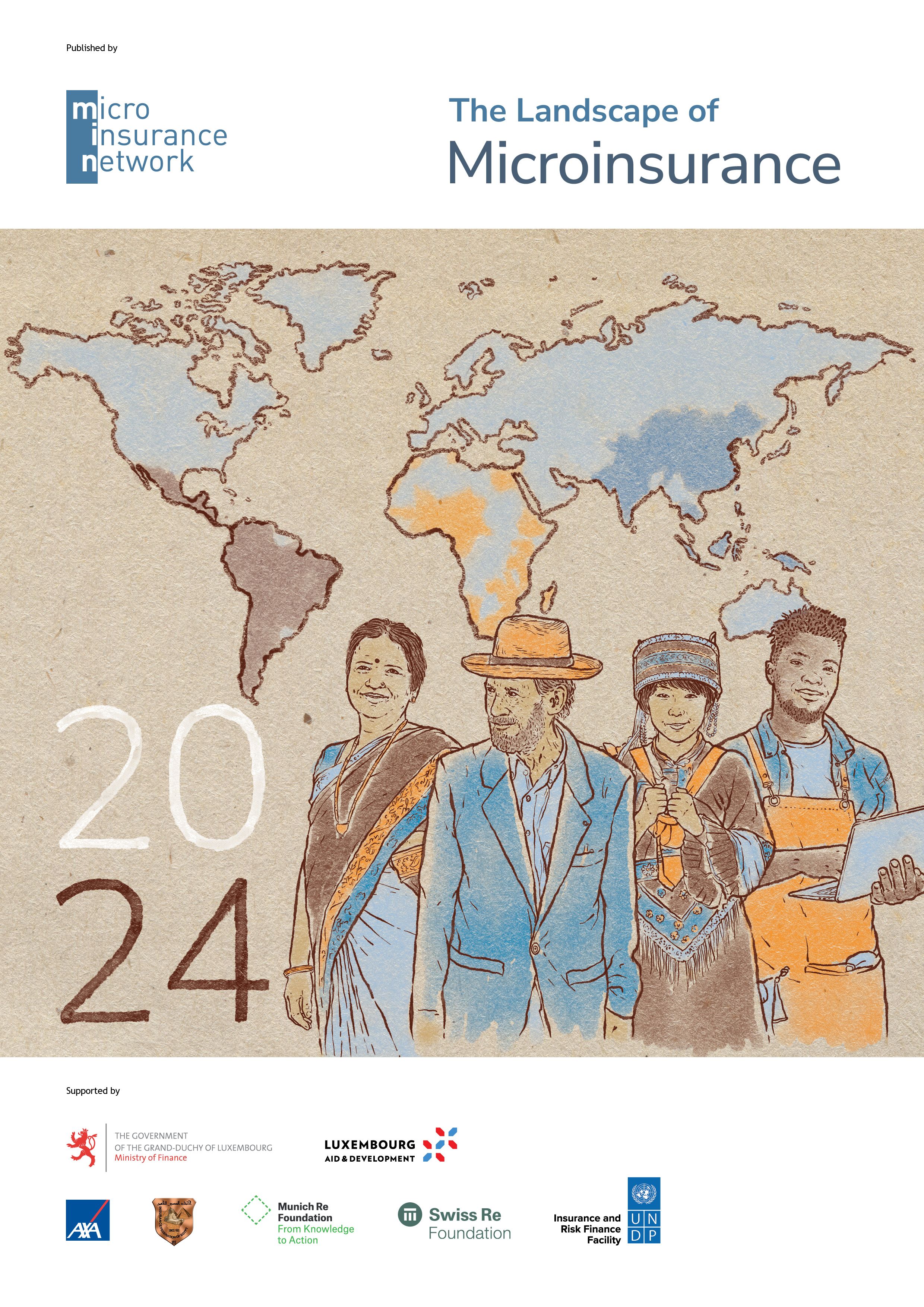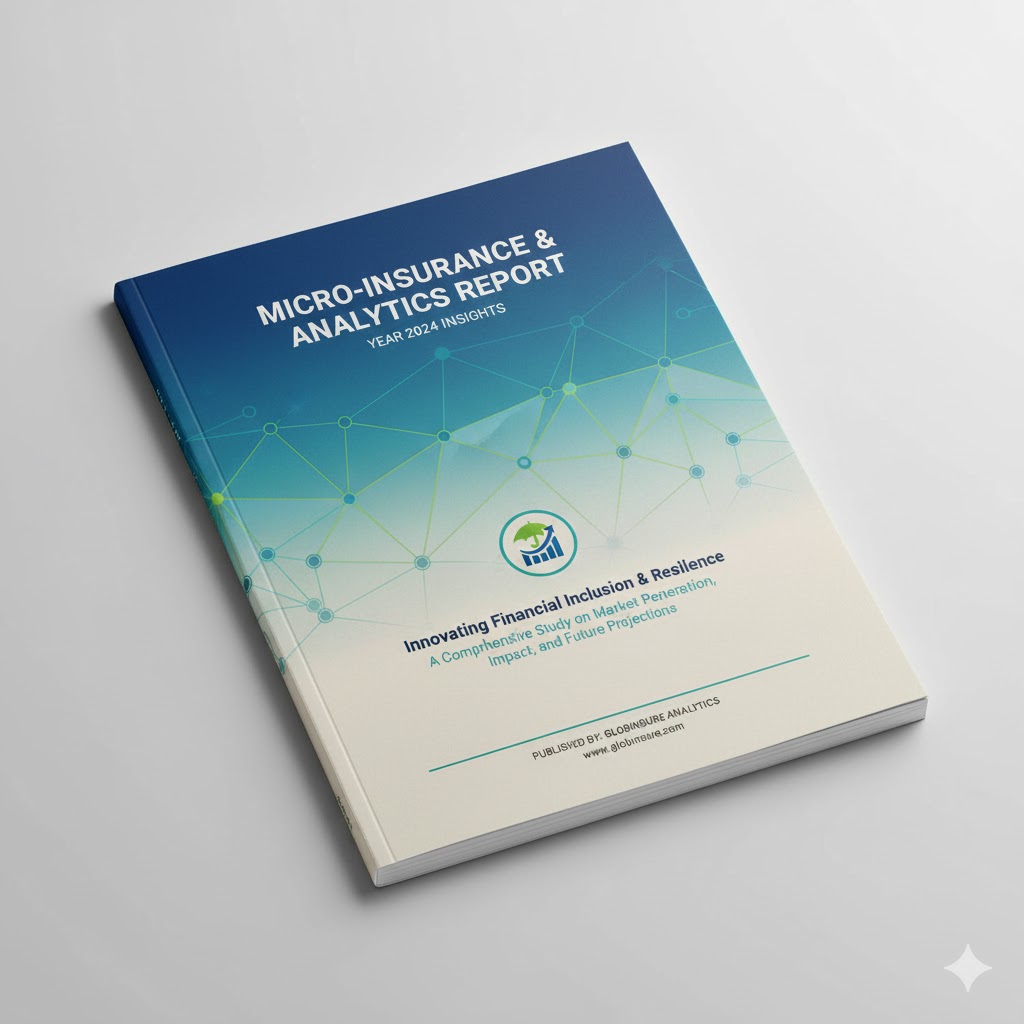Displaying 1 - 15 of 18

The Landscape of Microinsurance 2024
The Landscape of Microinsurance 2024 analyzes the growth and evolution of microinsurance, highlighting its critical role in supporting vulnerable populations facing climate shocks, crises, and financial insecurity. It covers 344 million people across 37 countries, examines regulatory frameworks, distribution channels, and subsidies, and emphasizes the need to close the protection gap while fostering long-term market development.
Date d'émission
2024
Sujets
Sujet (Produit)
Région

COVID-19 and the Insurance Industry: Why a Gender-Sensitive Response Matters
COVID-19 and the Insurance Industry: Why a Gender-Sensitive Response Matters. This guidance note explores how the COVID-19 pandemic affected the gender gap in insurance access and services. It identifies four key areas where applying a gender lens can improve customer-centricity: operational practices, brand communication, product innovation, and new distribution channels. With practical insights from IFC's Women's Insurance Program, the paper offers a roadmap for insurers to better serve women during and beyond crisis periods.
Date d'émission
2020
Région

DeRisking coffee in Vietnam: Piloting a Coffee Climate Protection Insurance scheme to enhance the capacity of smallholders and agribusinesses in coping with climate variability and change
Vietnam's Central Highlands – the world's largest Robusta coffee region – remains one of the country's poorest areas and is highly vulnerable to climate shocks. To build farmers' resilience, a Coffee Climate Protection Insurance (CCPI) pilot is providing smallholder coffee farmers with index-based insurance against drought, excessive rainfall, and extreme temperature, coupled with climate-informed agro-advisory services.
Date d'émission
2022
Sujets
Sujet (Produit)
Région

GREEN DELTA, BANGLADESH – The case for insuring women for a better tomorrow
The case for insuring women for a better tomorrow. Green Delta Insurance Company (GDIC), a private non-life insurer in Bangladesh, partnered with IFC and others to design targeted insurance solutions for women. This note explores why women represent a key growth segment, how GDIC tailored its approach for Bangladeshi women, and the lessons learned from implementing this gender-inclusive strategy in the local market.
Date d'émission
2020
Sujet (Produit)
Région

How Chhaya is Building an End-to-End Digital Microinsurance Platform in Bangladesh
Bangladeshi insurtech Chhaya develops affordable digital health and life insurance distributed via mobile payments (bKash) with a subscription model.
Date d'émission
2025
Sujets
Sujet (Produit)
Région

IFC Inclusive Business Case Study: MicroEnsure
MicroEnsure bundled insurance with mobile loans and airtime in 15 countries. By 2016, this model had scaled to reach over 40 million clients and included 200+ insurance products. It illustrates a high-impact approach to mobile-enabled microinsurance delivery with large-scale outreach.
Date d'émission
2016
Sujets
Sujet (Produit)

Innovative Index-Based Agriculture Insurance: Where hope meets possibility
A pilot index-based insurance product for rice farmers to mitigate flood-related risks and promote financial resilience.
Date d'émission
2022
Sujets
Sujet (Produit)
Région

INSULAR LIFE, PHILIPPINES – The case for insuring women for a better tomorrow
Insular Life, Philippines – This case study showcases how Insular Life (InLife), a leading life insurer and health maintenance organization in the Philippines, partnered with IFC and the Women Entrepreneurs Finance Initiative (We-Fi) to better serve Filipino women. Their gender-focused strategy positions InLife as both an inclusive insurer and an employer of choice for women. The report outlines their journey toward creating more accessible insurance solutions, workforce empowerment, and long-term impact on women's financial resilience.
Date d'émission
2021
Sujet (Produit)
Région

Insurance Automation by Lead Foundation in Egypt
Insurance automation initiative led by Lead Foundation in Egypt, exploring how digital systems can enhance access to inclusive life insurance. The case outlines the broader poverty and economic context, key capacity-building interventions, implementation strategy, and an honest reflection on both the successes and challenges faced. It also discusses project outcomes and lessons learned, offering a blueprint for tech-enabled insurance in underserved regions.
Date d'émission
2019
Sujets
Sujet (Produit)
Région

Making climate risk microinsurance work. Case Study: Green Delta Insurance Company (GDIC), Bangladesh
Making climate risk microinsurance work: Green Delta Insurance Company in Bangladesh. This case study explores the origin, design, and delivery of Green Delta's agricultural microinsurance program. It reviews pricing mechanisms, subsidy structures, operational challenges, delivery models, and real-world performance results. The analysis offers key lessons for building climate resilience through private-public partnerships in emerging markets.
Date d'émission
2022
Sujets
Sujet (Produit)
Région

Making climate risk microinsurance work. Case Study: Philippine Crop Insurance Corporation (PCIC), Philippines
Case study of the Philippine Crop Insurance Corporation (PCIC) and its role in climate risk microinsurance. This diagnostic overview outlines PCIC's origin, goals, and subsidy model, and examines the challenges and performance of its delivery system. The paper also highlights pricing strategies, key operational hurdles, and practical lessons learned — contributing to a broader understanding of how public sector agricultural insurance can support resilience in Asia.
Date d'émission
2021
Sujets
Sujet (Produit)
Région

MALAYAN INSURANCE, PHILIPPINES - The case for insuring women for a better tomorrow
This World Bank report analyzes how Philippine insurers adapted to COVID-19 and how their inclusive insurance models helped maintain resilience for over 38 million microinsurance policyholders. The study highlights product innovations, digital transformation, and lessons for future crisis response through inclusive insurance strategies.
Date d'émission
2020
Sujets
Sujet (Produit)
Région

Nepal: Introducing index-based insurance for flood-prone communities
Practical Action developed a flood index insurance for Western Nepal smallholder farmers. Features bundled services, cooperative-based sales, and payouts for crop loss after severe floods.
Date d'émission
2022
Sujets
Sujet (Produit)
Région

Pioneer Microinsurance: Building a Business around Positive Customer Experience Pays Off
Pioneer Microinsurance in the Philippines built a strong customer-centric culture by leveraging client data and insights and embedding customer-focused behaviors across the organization. This approach improved the customer experience, strengthened client value, and drove significant business growth, including higher policy renewals and expanded outreach.
Date d'émission
2018
Sujets
Sujet (Produit)
Région

Rashtriya Swasthya Bima Yojana (RSBY) – India
India's national public health insurance scheme for the poor, offering smart card–enabled, cashless hospitalization to over 37 million low-income families. This flagship initiative aims to enhance access to healthcare and financial protection for the most vulnerable populations across the country.
Date d'émission
2015
Sujets
Sujet (Produit)
